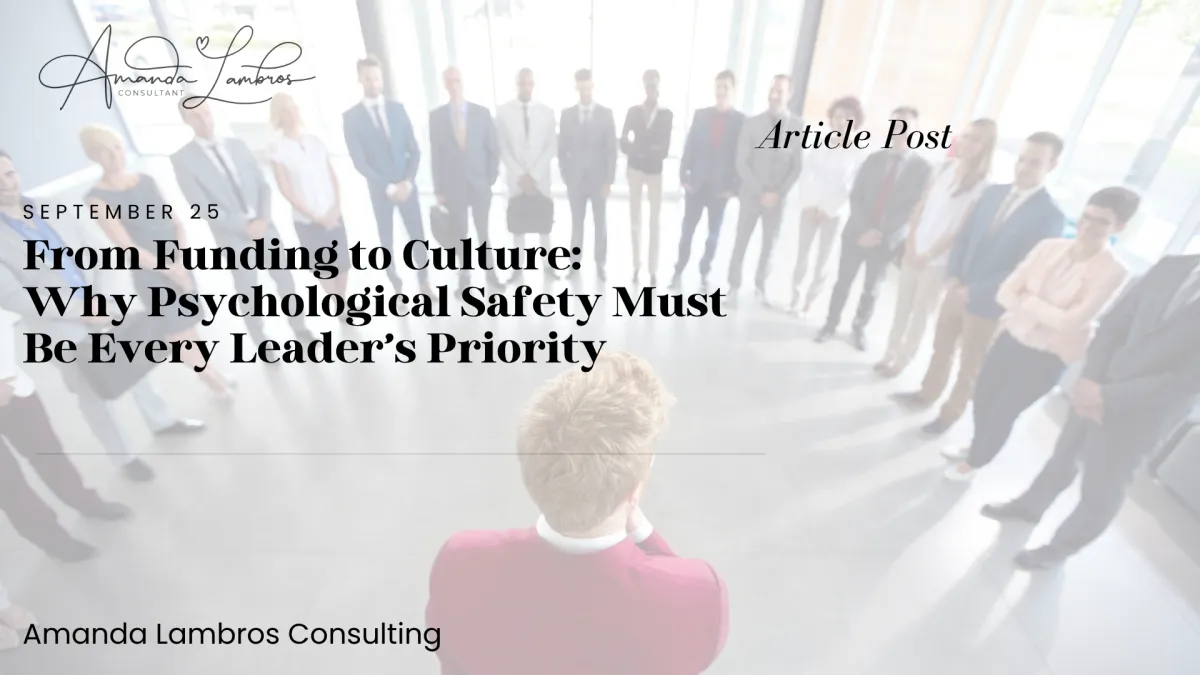
From Funding to Culture: Why Psychological Safety Must Be Every Leader’s Priority
This week, the NSW Government announced a $5 million contribution to a new workplace mental health research centre, with more than 40 partners pledging $58 million in support. It’s part of a broader $344 million workplace mental health package.
On the surface, this is excellent news. It signals that governments, universities, and businesses are taking workplace mental health seriously. But here’s the truth: research dollars only matter if leaders translate them into daily workplace culture.
Why Psychological Safety Matters Now
Psychological safety isn’t a buzzword. It’s the foundation of trust, innovation, and performance. When employees feel safe to speak up, share ideas, and admit mistakes without fear of punishment, teams thrive.
Google’s Project Aristotle identified psychological safety as the number one factor driving high-performing teams. Yet Safe Work Australia reports that mental health claims are rising, with workers suffering psychological injury needing four times longer off work and costing three times more than physical injury claims.
Clearly, there’s a gap between what we know works and what workplaces are actually doing.
The New Legal Landscape
Australia’s new psychosocial hazard legislation places a legal duty on employers to manage risks like stress, bullying, and burnout just as they would physical hazards. That means psychological safety is no longer optional, it’s a compliance requirement.
Failing to act doesn’t just risk staff wellbeing; it risks legal and reputational consequences.
From Policy to Practice
The NSW investment is welcome, but here’s where leaders need to step up: translating research into action. Funding and frameworks are important, but employees judge culture on lived behaviours.
Leaders can start here:
Model vulnerability: Share your own wellbeing practices and challenges. It normalises openness.
Address hazards early: Don’t wait until stress or conflict escalates into claims. Prevention saves time, money, and people.
Balance care with accountability: Employees don’t need lower standards, they need safe conditions to meet them.
Embed wellbeing into systems: Meeting-free lunch breaks, flexible work, and genuine recognition go further than an EAP brochure.
A Call to Leadership
The NSW Government’s funding is a powerful signal, but culture won’t change in Parliament or research centres alone. It changes in day-to-day leadership: the conversations managers have, the behaviours executives model, and the systems organisations uphold.
As we head toward World Mental Health Day on October 10, leaders have a choice: treat psychological safety as a compliance box to tick, or embrace it as the foundation for thriving teams and sustainable performance.
Because here’s the bottom line: unsafe workplaces are no longer acceptable. Not legally. Not ethically. Not commercially.
Reflection question: What’s one action your organisation can take this week to move from research to real cultural change?


